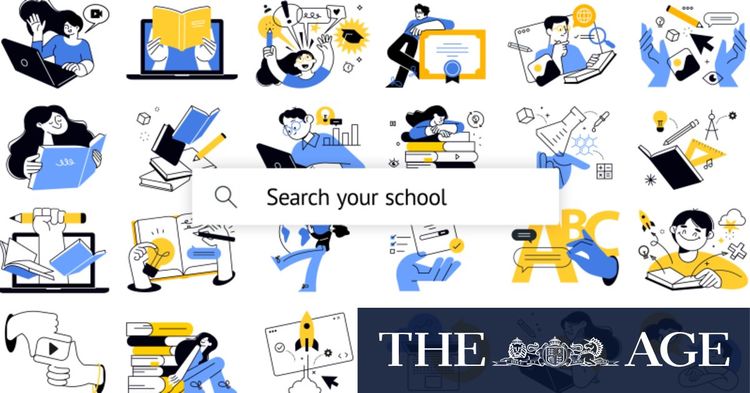Search your school's results using our 2024 NAPLAN interactive guide

Results of this year’s NAPLAN test have been released, offering parents a snapshot of schools’ performances in reading, writing, spelling, grammar and numeracy.
The Age’s interactive guide to results allows families to search their school’s results in this year’s exams, sat in March by more than 300,000 students from years 3, 5, 7 and 9 across Victoria.
Schools in the guide are listed in alphabetical order and not ranked in order of achievement. The scores reflect raw test result data and are not weighted for schools’ socioeconomic status. Weighted data is available at the MySchool website.
As the education sector reacted on Wednesday to the publication of the results, Australian Curriculum, Assessment and Reporting Authority (ACARA) chief executive Stephen Gniel told radio 3AW that the ultimate goal of NAPLAN was to support improvements in educational outcomes.
“We keep doing the best we can and providing this kind of information so that schools and the broader community can really get behind education and support those kids,” Gniel told the station.
Loading
He said ACARA rarely saw schools that “gamed the system” to improve results.
“We don’t see a lot of that … most people are focused on making sure we know how kids’ literacy and numeracy skills are tracking,” he said.
Gniel highlighted the performance this year of schools in under-privileged areas.
“Those are schools that are serving, really challenging communities … and they’re punching above their weight,” he told 3AW.
Victorian Principals Association deputy president Deborah Grossek said NAPLAN data allowed schools to deeply analyse how their students were performing.
Loading
“We can actually look at whether there are gaps in learning, and we relate that to our teaching program and what we need to teach,” Grossek, principal of Glendal Primary School in Glen Waverley, told ABC radio this morning.
But she said the results only partly contributed to how the public perceived a school.
“It’s only part of what they hear in the community about whether a school is a good school or not, whether they’re inclusive, whether they’ve got a good student wellbeing program and so on,” Grossek said.
“It’s probably a small part of the puzzle,” she added.
The Morning Edition newsletter is our guide to the day’s most important and interesting stories, analysis and insights. Sign up here.
Loading



















































